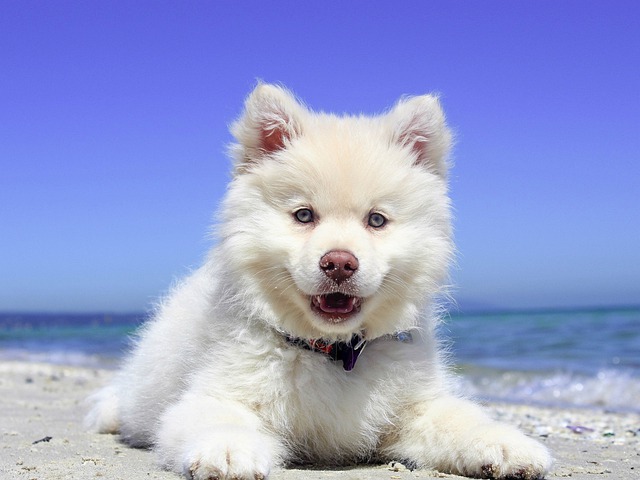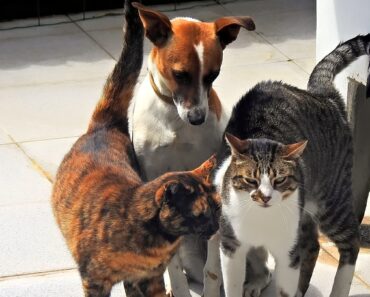Hair loss or alopecia is a normal and regular occurrence in both dogs and cats, especially during seasonal moults in the spring and fall. It is a natural cycle during which the hair grows, dies and eventually falls out. The hair has indeed a rather short life span. All that is required is careful brushing of your pet. However, when hair loss becomes excessive and skin shows, there is cause for concern.

The cause of the problem
There are many reasons for excessive hair loss in dogs and cats. It can be due to the presence of skin parasites or fungi that cause skin diseases, stress, aging of the animal, a hormonal disorder, an allergy, poor or inadequate nutrition or even skin cancer.
Parasites or fungi
Skin parasites are fleas, mites, ticks or lice. These insects are said to be hematophagous, which means that they feed on blood and then turn red. They cause hair loss. Alopecia can also be caused by the presence of microscopic fungi. These parasites or fungi cause skin diseases that result in excessive hair loss until the skin is left exposed, which is called alopecia.
Scabies is a highly contagious skin disease caused by a microscopic mite. Ringworm is also a highly contagious fungal hair disease caused by a fungus called dermatophyte, literally “skin fungus”.
Stress
When your dog or cat is anxious or stressed, it can shed a lot of hair. A change in your pet’s daily routine can cause stress. Other factors that can cause anxiety in a cat or dog include the absence of a family member or the arrival of a child in the family. Also, the arrival of another pet in the home can stress your cat or dog.
Aging
Your pet may lose its hair as it ages. Indeed, various pathologies more or less heavy related to the age of your animal support an abundant loss of its hairs. You can tell that your dog or cat is aging by the white hairs that appear on its muzzle in particular.
A hormonal disorder
Because your pet’s hair growth is regulated by hormones, hormonal disorders can cause alopecia. Diabetes mellitus is an example of a hormonal disorder that can cause excessive hair loss.
An allergy
Your pet may have an allergic reaction to flea bites that cause severe itching and alopecia from scratching, biting and licking.
Feeding
Make sure your dog or cat gets a varied and balanced diet for its well-being and to avoid any risk of illness due to deficiencies.
Skin cancer
Excessive hair loss can be a sign of a more serious disease such as skin cancer, which most often occurs in older people. It manifests itself by protuberances and abnormal thickening of the skin.
The symptoms
Just like the causes of alopecia, the signs that characterize it are numerous. They may include itching, red patches, scabs, behavioral changes, loss of appetite or apathy. You need to be aware of these signs.
Itching, redness and scabs
Parasites or fungi can cause itching. For example, flea bites will cause your dog or cat to scratch and chew. This will lead to hair loss and can cause injury. Scabies also causes itching and lesions on the skin. Repeated scratching or licking causes redness, scabs, abrasions, hair loss, skin thickening and, in some cases, skin infections.
Changes in the animal’s behavior
For example, with diabetes mellitus, your dog or cat will drink more than usual and urinate frequently.
Loss of appetite
Heavy shedding can cause a loss of appetite related to an underlying disease. Be alert if your pet is pouting!
Apathy
Apathy is characterized by a lack of energy, a loss of motivation and an indifference to emotions. Excessive shedding is often a sign of an underlying disease and will make your pet very tired. He may also feel depressed.
Treatments
A visit to the veterinarian is a must
If your pet loses its hair in an excessive way, it is advisable to consult a veterinarian first. He will be able to direct you towards the appropriate treatment according to the origin of this alopecia and by proceeding by elimination. It will be a question of treating the origin of this abundant hair loss.
Food supplements
Depending on the diagnosis, the veterinarian may advise you to give your pet food supplements containing vitamins, minerals (sulfur, zinc) and essential fatty acids (omega 3 and 6). Adapted to the hair, they will slow down their fall and will favour their regrowth.
An anti-parasite solution
If the excessive hair loss is due to a parasite such as fleas or ticks, the veterinarian will prescribe an antiparasitic in the form of a collar, a spray, a pipette, a shampoo or tablets for your pet.
Natural remedies
You can also apply a plant-based oil to your dog or cat’s skin. This will soothe the itching and help slow down hair loss, thus promoting hair growth.
Hair loss in an animal is normal up to a certain limit. If your pet presents atypical skin problems and worrisome behavior, you should not hesitate to consult a veterinarian and follow his advice.






